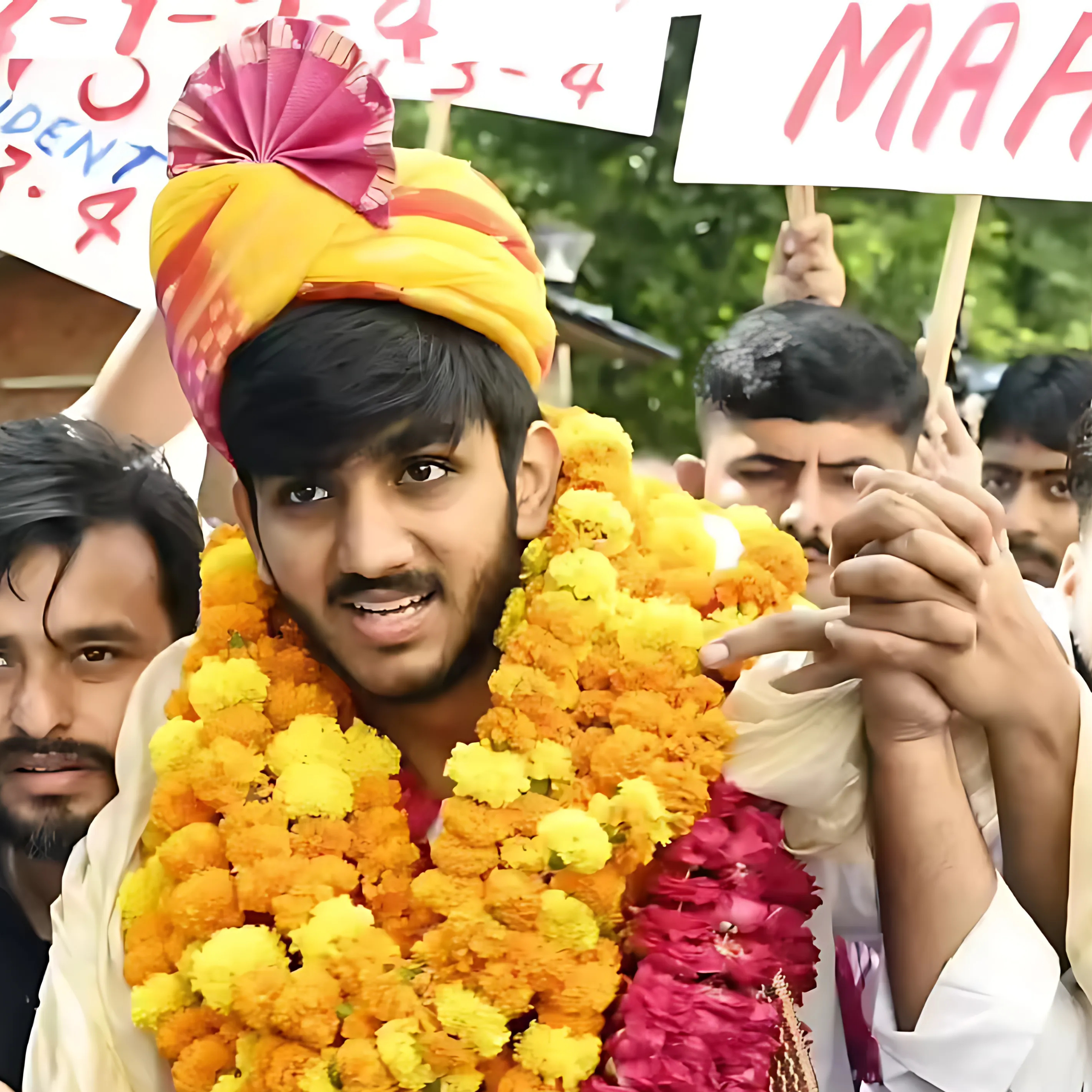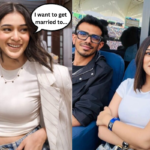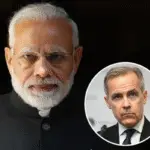Now Reading: 5 DUSU Election Moments That Broke the Internet: Why Students Want Elections Every Month
-
01
5 DUSU Election Moments That Broke the Internet: Why Students Want Elections Every Month
5 DUSU Election Moments That Broke the Internet: Why Students Want Elections Every Month

Delhi University’s student elections just wrapped up three days ago, and honestly, the viral content coming out of DUSU Elections 2025 is making professional comedy writers question their career choices. While most people think student elections are boring academic formalities, Delhi University students have turned their democratic process into the most entertaining political theater India has seen all year.

The results are in, the winners are celebrating, but the real story isn’t who won – it’s the absolutely hilarious, heartwarming, and sometimes jaw-dropping moments that have made #DUSUElections2025 trend nationwide and convinced half the student body that elections should happen every month just for the entertainment value.
Here’s the brutal truth: these students have cracked the code for making politics fun, engaging, and genuinely worth following, while most actual politicians are still figuring out how to use social media without embarrassing themselves.
The “Elections Should Last 2 Months” Student Who Became an Internet Legend
The moment that absolutely broke Twitter happened when a student casually mentioned that DUSU elections should run for two months straight because of all the free movie tickets, meals, and entertainment that candidates provide during campaigning. The video went viral faster than you can say “student politics,” and suddenly everyone was questioning why regular elections can’t be this much fun.
This wasn’t just a funny comment – it revealed something brilliant about how DUSU campaigns work. Unlike boring adult politics where candidates make promises they’ll never keep, DUSU candidates actually deliver immediate benefits to students. Free food, movie screenings, cultural events, and genuine engagement with student issues create an election atmosphere that feels more like a festival than a political campaign.

The viral moment also highlighted the pure honesty that makes student politics so refreshing. While professional politicians craft calculated messages, this student just said what everyone was thinking: “These elections are actually fun, why don’t they last longer?” It’s the kind of authentic reaction that resonates with audiences tired of artificial political messaging.
The comment sparked a nationwide conversation about making politics more engaging for young people. If student elections can generate this much genuine enthusiasm, what are regular politicians doing wrong? The answer seems to be: pretty much everything.
The ABVP Victory That Proved Student Politics Is Serious Business
When Aryan Maan from ABVP (Akhil Bharatiya Vidyarthi Parishad) was declared the new DUSU President, the celebration videos showed something remarkable: these students take their democratic process seriously while still managing to have fun with it. The victory speeches, celebration rallies, and supporter reactions demonstrated a level of political engagement that puts many adult voters to shame.
The ABVP victory wasn’t just about party politics – it represented months of genuine campaigning, policy discussions, and student outreach that rivals professional political operations. These candidates attended lectures, participated in debates, organized events, and built grassroots support networks that would impress seasoned campaign managers.
What made the victory celebration videos particularly viral was the authentic emotion displayed by winners and supporters. Unlike staged political events, these students were genuinely excited about their democratic participation. The joy, relief, and pride visible in viral videos reminded viewers what politics looks like when participants actually care about the outcomes.
The new DUSU leadership also represents the future of Indian politics – young, energetic, socially conscious leaders who understand both traditional democratic processes and modern communication methods. They’re using social media effectively, engaging directly with constituents, and addressing real issues that matter to their peers.
The Security Deployment at DUSU That Made It Look Like a State Election
The massive security presence at DUSU Elections 2025 created viral content that had people wondering if they were watching student elections or national polls. Videos of heavy police deployment, barricaded voting areas, and serious security protocols made it clear that Delhi University takes its democratic process very seriously indeed.
This security deployment actually speaks to the significance of DUSU elections in Indian politics. Many current political leaders, journalists, and activists got their start in student politics, making these elections genuine launching pads for future national leaders. The serious security measures reflect the real importance of these positions in shaping political discourse.
The contrast between serious security and fun campaign moments created some genuinely hilarious viral content. Videos of students joking with security personnel, taking selfies near barricades, and treating the heavy deployment as just another part of the election experience showed the unique ability of young people to find humor in formal situations.
International students and social media users were particularly fascinated by the scale of organization required for student elections in India. Comments from global audiences expressed amazement that student elections could generate this level of institutional support and public interest.
The Viral Campaign Strategies That Put Professional Politicians to Shame
DUSU candidates used campaign strategies that were so creative, authentic, and effective that political consultants should be taking notes. Instead of boring speeches and formal rallies, candidates organized flash mobs, created catchy songs, used memes effectively, and engaged in genuine conversations with students about issues they actually cared about.
The most viral campaign moments involved candidates participating in everyday student life – eating in mess halls, studying in libraries, attending cultural events, and showing up for sports competitions. This accessibility created content that felt real rather than manufactured, generating organic support that money can’t buy.
Social media strategies employed by DUSU candidates were particularly sophisticated. They used platform-specific content, engaged directly with voters through comments and messages, created shareable memes, and built genuine online communities around their campaigns. These weren’t just publicity stunts – they were effective communication strategies that created lasting voter connections.
The creativity displayed in campaign materials, events, and messaging showed that student politicians understand their audience better than most professional campaigns understand theirs. They spoke the language of their peers, addressed real concerns, and did it all with humor and authenticity that made political engagement feel natural rather than forced.
The Voter Turnout That Made Headlines Nationwide
The massive voter participation in DUSU Elections 2025 created viral content that had everyone talking about the engagement levels of Delhi University students. Long queues, enthusiastic voters, and genuine excitement about the democratic process proved that young Indians are far from politically apathetic when given meaningful choices.
Viral videos of students waiting patiently in long voting lines, discussing candidates and issues, and celebrating their participation in democracy created powerful content that challenged stereotypes about young voter engagement. These weren’t students being forced to participate – they were genuinely excited about exercising their democratic rights.
The voter turnout numbers, when they were released, surprised even election observers who expected lower participation. The high engagement levels demonstrated that when elections feel meaningful and candidates are accessible, young people will participate enthusiastically in the democratic process.

International media coverage of DUSU voter turnout highlighted India’s democratic traditions and the serious approach that educational institutions take toward student governance. The positive coverage created additional viral content as international observers praised the democratic engagement displayed by Indian students.
The Meme Culture That Made Politics Accessible
Perhaps the most significant aspect of DUSU Elections 2025 was how effectively students used meme culture to make political participation feel natural and fun. Candidate memes, election situation memes, and voting experience memes created content that spread far beyond Delhi University and made student politics nationally relevant.
The meme content wasn’t just entertainment – it was effective political communication that translated complex issues into accessible, shareable formats. Students who might not read lengthy policy statements were learning about candidates and issues through humorous, engaging memes that made political information digestible.
The viral nature of DUSU election memes also demonstrated how young Indians are reshaping political discourse. Instead of formal, serious political communication, they’re creating content that’s funny, relatable, and genuinely engaging while still addressing real issues and meaningful choices.
This memefication of politics has serious implications for future political communication in India. If student elections can generate this level of engagement through humor and creativity, professional politicians need to reconsider their communication strategies to connect with younger audiences effectively.
The Free Food Economy That Actually Works
One of the most viral aspects of DUSU campaigns was the incredible food culture that emerges during election season. Candidates providing free meals, snacks, and treats to students created content that had everyone wondering why adult political campaigns don’t understand this basic principle of voter engagement.
The free food wasn’t just vote-buying – it was community building that brought students together to discuss candidates, issues, and the election process. Shared meals created opportunities for genuine political conversations that formal rallies and speeches rarely achieve. Students were learning about democracy while enjoying good food and social interaction.
Viral videos of massive food distributions, creative cuisine choices, and students genuinely appreciating candidate generosity created content that felt positive and community-focused rather than transactional. This approach to voter engagement showed that politics can be generous, inclusive, and genuinely caring about participant welfare.
The economic impact of campaign food spending also created interesting discussions about election economics. Students calculated the actual cost of feeding voter bases, compared candidate food strategies, and analyzed the effectiveness of different culinary approaches to political engagement.
The Cultural Events That Made Campaigning Fun
DUSU candidates organized cultural events, concerts, and entertainment programs that made election season feel like an extended festival rather than a political competition. These events created viral content while providing genuine value to students who got to enjoy high-quality entertainment as part of the democratic process.
The cultural approach to campaigning demonstrated sophisticated understanding of voter engagement. Instead of treating voters as passive recipients of political messages, candidates created events where students were active participants in community-building activities that naturally fostered political discussions and candidate evaluation.
Viral videos from these cultural events showed students genuinely enjoying themselves while engaging with political candidates in relaxed, fun environments. This approach made political participation feel natural and enjoyable rather than dutiful or boring, creating positive associations with democratic engagement.
The success of cultural campaign events has implications for broader political engagement strategies. If entertainment and politics can be combined effectively at the student level, there’s potential for similar approaches to increase voter engagement in regular elections.
The Social Media Mastery That Impressed Marketing Professionals
DUSU candidates used social media with sophistication that would impress professional marketing agencies. They created platform-specific content, engaged authentically with voters, built genuine communities, and generated organic viral content that reached audiences far beyond their immediate voter base.
The social media strategies weren’t just about self-promotion – they were about community building, issue discussion, and genuine political engagement. Candidates used their platforms to highlight student concerns, share campus experiences, and create content that felt valuable rather than purely promotional.
Viral social media content from DUSU elections included everything from behind-the-scenes campaign moments to serious policy discussions, creating a complete picture of student political engagement that was both entertaining and informative. This comprehensive approach to social media made political participation feel accessible and interesting.
The effectiveness of student politician social media strategies created discussions among professional political consultants about learning from student approaches to voter engagement. When student elections generate more authentic online engagement than professional campaigns, there are clearly lessons to be learned.
The Issue-Based Campaigning That Actually Addressed Real Problems
Unlike many political campaigns that focus on abstract promises, DUSU candidates addressed specific, immediate issues that directly affected student life: mess food quality, library facilities, campus safety, cultural event funding, and academic support services. This practical approach to political campaigning created content that felt relevant and meaningful.
The specificity of student political issues made campaign discussions more concrete and evaluable than typical political rhetoric. Students could assess candidate promises based on their daily experiences and hold winners accountable for delivering on specific, measurable improvements to campus life.
Viral content emerged from candidates actually demonstrating their understanding of student issues – eating mess food, using library facilities, participating in campus activities – rather than just talking about these issues from a distance. This hands-on approach created authentic content that resonated with voters who appreciated genuine understanding of their experiences.
The practical focus of DUSU campaigns created useful templates for broader political engagement. When political candidates address real, immediate issues that voters experience daily, political participation feels more meaningful and outcomes feel more consequential.
The International Attention That Made India Proud
DUSU Elections 2025 generated international attention that highlighted the democratic traditions and political engagement of Indian students. Foreign media coverage, international student observations, and global social media discussions created viral content that positioned Indian student democracy as a model worth studying.
The positive international coverage contrasted sharply with typical political news, showing the world a version of Indian politics that was energetic, honest, fun, and genuinely democratic. This positive representation created national pride and demonstrated the potential for Indian political engagement when it’s done right.
International students studying in Delhi University created content comparing DUSU elections to student politics in their home countries, often favorably highlighting the scale, seriousness, and engagement levels of Indian student democracy. These comparative perspectives created viral content that educated global audiences about Indian democratic traditions.
The global attention also created opportunities for broader discussions about youth political engagement, democratic education, and the role of student politics in developing future leaders. DUSU elections became a case study in effective democratic participation that other countries began examining for lessons about engaging young voters.
DUSU Elections 2025 proved that politics can be fun, engaging, meaningful, and genuinely democratic when participants approach it with authenticity, creativity, and genuine concern for their community. These students didn’t just participate in democracy – they showed the rest of the country how political engagement should actually work.
The viral moments, enthusiastic participation, and positive outcomes from DUSU elections offer a blueprint for making broader political participation more appealing to young Indians who are clearly capable of sophisticated democratic engagement when given meaningful choices and authentic candidates.
Your neighborhood college students aren’t just playing at politics – they’re demonstrating how democracy works best when participants actually care about outcomes and treat political engagement as community building rather than competition. The revolution is happening in classrooms and campus centers, and it’s more entertaining and effective than anything professional politicians have produced lately.
Frequently Asked Questions:
What made DUSU Elections 2025 go viral on social media? DUSU Elections 2025 went viral due to several authentic moments, including a student’s comment about wanting elections to last “2 months for free movie tickets,” creative campaign strategies involving memes and cultural events, massive voter turnout with enthusiastic participation, and the contrast between serious security deployment and fun student moments that created engaging, shareable content across social media platforms.
Who won the DUSU Elections 2025 and when were results announced? ABVP’s Aryan Maan won the DUSU President position in the 2025 elections. The results were announced three days ago (September 19, 2025), with the victory generating significant celebration videos and social media content that contributed to the viral nature of these student elections.
Why are DUSU elections considered important in Indian politics? DUSU elections are significant because they serve as launching pads for future political leaders, with many current politicians, journalists, and activists having started in student politics. The elections require heavy security deployment and generate national attention because they represent one of the country’s largest student polls and influence broader political discourse in India.
How do DUSU candidates campaign differently from regular politicians? DUSU candidates use more authentic and creative strategies including organizing cultural events and concerts, participating directly in student life (eating in mess halls, studying in libraries), using memes and platform-specific social media content effectively, addressing immediate, practical issues like food quality and campus facilities, and providing genuine community benefits like free meals and entertainment during campaigns.
What international attention did DUSU Elections 2025 receive? The elections generated positive international media coverage highlighting Indian democratic traditions and student political engagement. International students created comparative content about student politics in their home countries, often favorably highlighting the scale and seriousness of Indian student democracy, making DUSU elections a global case study for youth political engagement and democratic education.
Also read: The 7 Instagram Features You’re Not Using That Could Make You Famous – ParsoTak.in


















